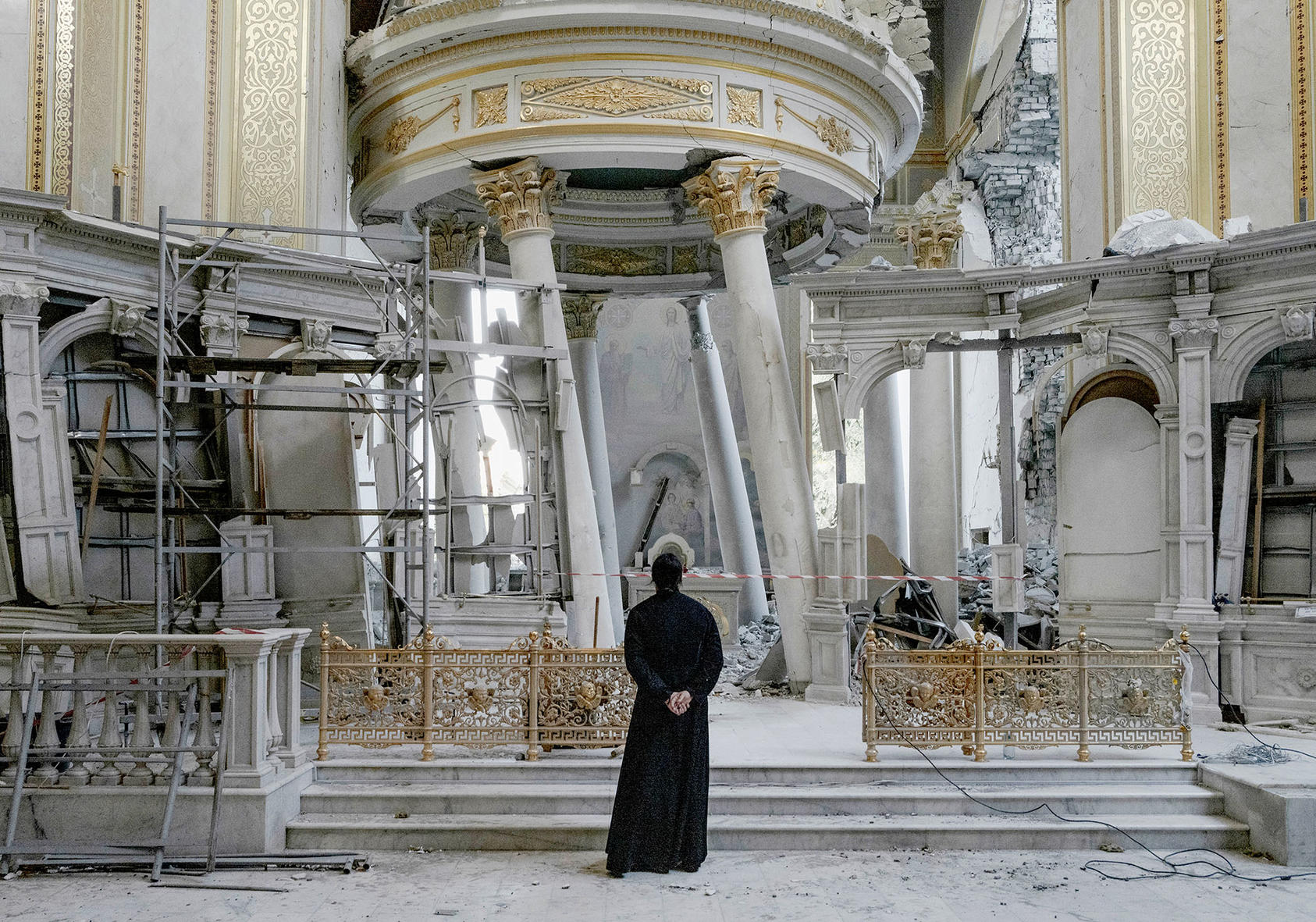Mapping the Religious Landscape of Ukraine
Religion and religious actors have been important influences on the occupation of Crimea and on hybrid warfare issues in eastern Ukraine since 2014. Since Russia’s February 2022 full-scale invasion, they have influenced social dynamics within Ukraine as a whole. This report analyzes the nuanced connections between religion and society, which are crucial to understanding the conflict, and offers lessons that can guide effective, feasible peacemaking and peacebuilding interventions.

Summary
The conflict in eastern Ukraine that began in 2014, and its escalation into a war encompassing all of Ukraine’s territory following Russia’s February 2022 invasion, are the result of the intersection of numerous forces both geopolitical and ideological—many of which are not explicitly religious. Nevertheless, religion and religious actors have an important effect on Ukrainian society at large, the evolution of conflict dynamics, and prospects for future peacebuilding.
Despite its clear relevance, international policymakers, humanitarian actors, and peacebuilders have rarely engaged with religion as a key factor in understanding the conflict in Ukraine, its possible evolution, or opportunities for peace. The conflict in Ukraine is multilayered, and religion permeates every level. Better recognition of the nuanced role religious actors play in shaping societal and political narratives will provide much-needed insight into the causes and perpetuation of conflict and help to identify possible entry points for integrating religious actors into peacebuilding efforts.
At the same time, international nongovernmental organizations and policymakers will need to strike a delicate balance when engaging with religious actors, as tensions within different religious communities—sometimes based on personal disagreements, sometimes on local political or even geopolitical considerations—threaten to undermine bridge-building initiatives. Moreover, focusing too closely on the biggest religious actors in Ukraine obscures the important work done by grassroots-level actors or by individual religious leaders in the name of peace. Future work with the religious sphere in Ukraine must find ways to incorporate smaller, sometimes low-profile initiatives connecting warring religious factions. Overall, the United States and other international partners must recognize that religious organizations and institutions will, in all likelihood, continue to play a prominent role in Ukraine’s political, ideological, and humanitarian spheres.
About the Report
This report maps Ukraine’s religious landscape in order to explore the role of religion and religious organizations in perpetuating, and potentially mitigating, societal tensions in conflict. Most of the study was prepared before Russia’s invasion of Ukraine in February 2022, but the findings remain relevant. This research was supported by the United States Institute of Peace and by the Culture and Religion in Mediation program, a joint initiative of the Center for Security Studies at the Swiss Federal Institute of Technology Zurich and the Swiss Federal Department of Foreign Affairs.
About the Authors
Denys Brylov, a psychologist and anthropologist of religion who holds a DSc degree in religious studies and theology, is head of the European Centre for Strategic Analytics in Kyiv. Tetiana Kalenychenko holds a PhD in sociology of religion and is executive director of the European Centre for Strategic Analytics in Kyiv as well as a dialogue facilitator and expert in peacebuilding. Andrii Kryshtal is a Ukrainian sociologist and international expert in peacebuilding currently based in Croatia.



